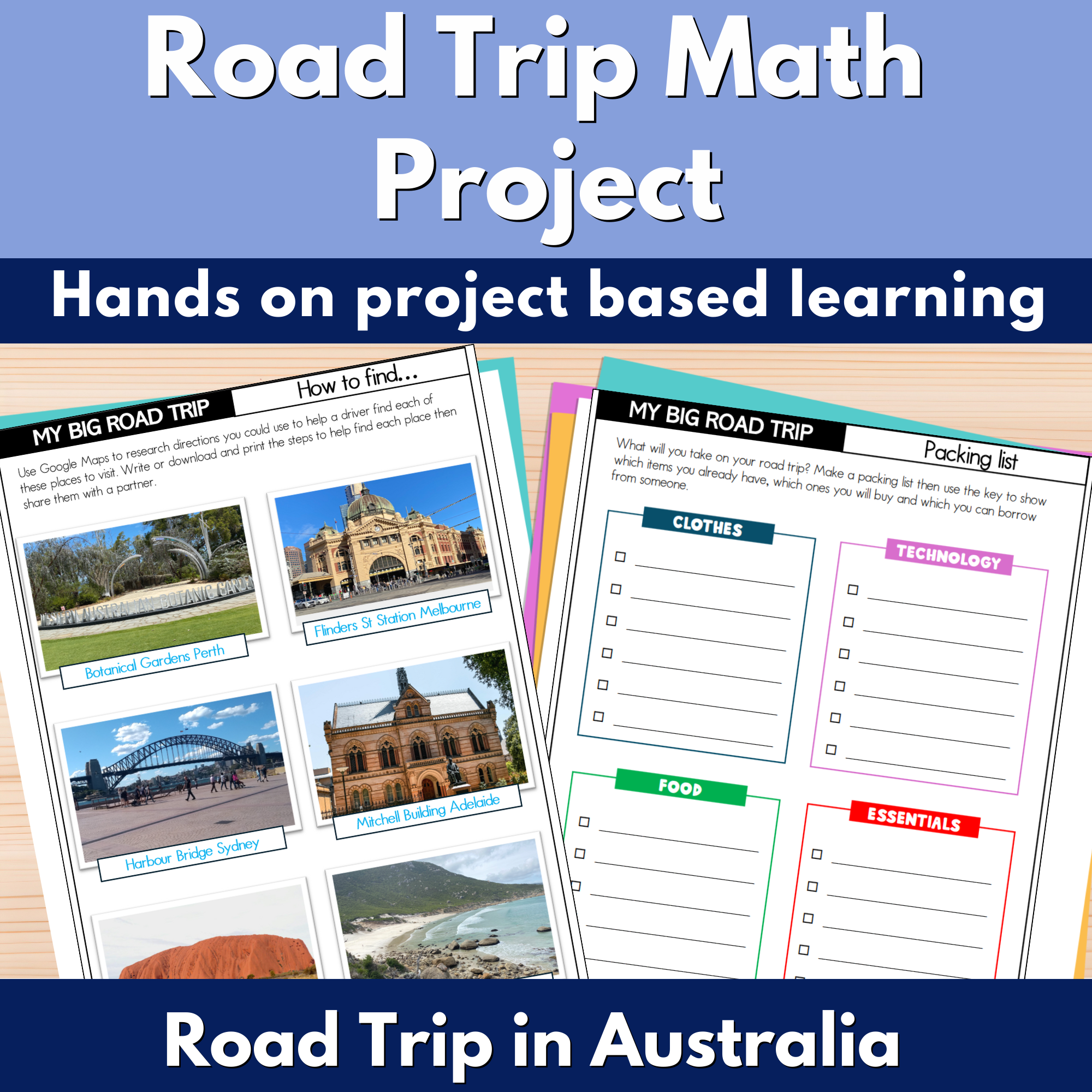Let's share a road trip project to build some real world math skills for vpc numeracy!
Perfect for a holiday math project, independent learning unit or simply to pick and go during VPC numeracy class, this low prep unit is also ideal for life skills, transition education, resource room or pathways students in Grades 10 to 12. It is also suitable for adult learners in functional skills, foundation skills and general education courses. It's super handy to keep for days when you want students working on different skills in the same class, or for times when you are out of the classroom and you need some real world work tasks to keep everyone busy - and learning!
What's inside?
Your students will love exploring Australia as they apply their hands on math skills to real world scenarios in a road trip project.
Learning otucomes focus on:
- Calculating distances
- Giving directions
- Comparing prices
- Adding costs
- Working out the best value
- Writing a savings plan
- Making a budget
- Using a map
- Finding information online
- Checking temperatures
- Making graphs, tables and charts
- Learning about speed, distance and time
- Using simple formulas
- Researching activities and places
- Working with maps and directions
This road trip math project is great for using as part of your hands on project based learning activities, to support developing literacy and numeracy skills and to meet learning outcomes for basic skills, numeracy and life skills maths courses.
What's inside?
There are 52 pages of literacy, numeracy, problem solving and planning content with activities for independent and small group work, including doing online research, sharing information and making choices about destinations to visit and activities to explore.
Students learn about Australian places and can choose to research activities and destinations which interest them. They can use Google Maps to help them find place names and research routes to travel to their destination. They decide what music they will listen to, play games using a tally to record data about car colours, check the price of fuel and discover Australian natural landmarks, attractions and places to stay. They practice giving directions, reading graphs and charts, using tables, working with simple formula, estimating and measuring distances between places and converting between metres and kilometres.
Note: Units of measurement (metres, kilometres, litres, dollars, Celcius) and place names are related to Australia.
This is a downloadable resource. Simply download, print and use the pages you want with your own class or group.
